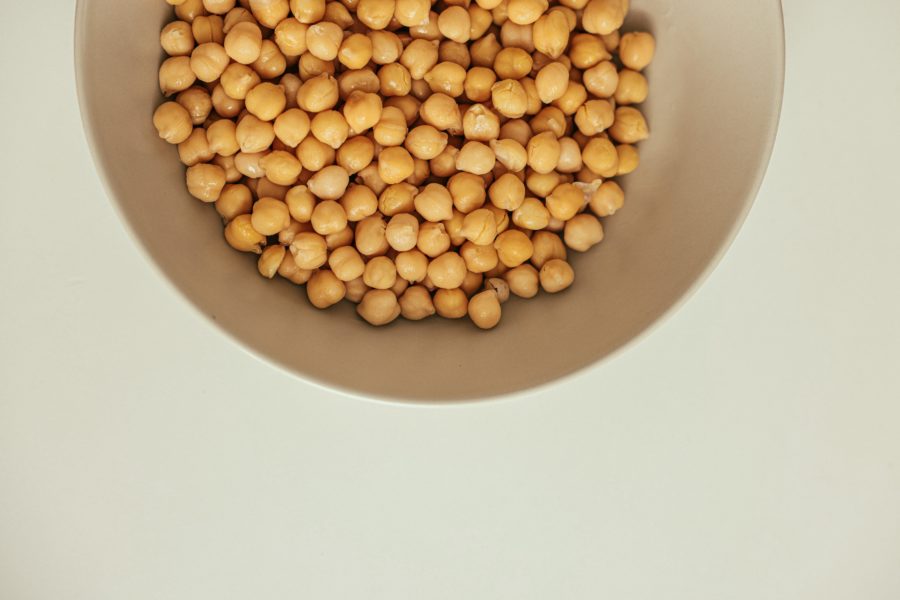Chickpeas. These legumes are healthy carbohydrate alternatives to grains and are a healthy and natural treat to consider instead of processed snacks.
Chick pea benefits
Despite being small in size, chickpeas have high levels of protein and fiber and low levels of fat. They also have a healthy fat level of 4%, which is a higher percentage than in other grains. This in turn positively contributes to your pets’ energy.
Chickpeas, or garbanzo beans as some like to call them, contain a fatty acid called lecithin, which helps in cell production, in lowering your pets’ cholesterol and digestion. For those pets who are more prone to heart diseases, such as miniature poodles, cocker spaniels, Pomeranians, schnauzers, Great Danes and Irish wolfhounds, this fatty acid may improve their heart health. There’s also a high percentage of potassium, which also boosts a healthy heart.
Garbanzo beans contain vitamin A, which helps with your pets’ eyes, and vitamin C, which helps prevent cell damage and provides antioxidants to boost general health.
How to add them to your pet’s diet
According to the International Center for Advanced Mediterranean Agronomic Studies, adding chickpeas to your horse’s diet helps them develop a bright coat and soft skin, which is a sign of good health.
It’s crucial to mention that chickpeas are not meant to be a complete substitution for your pets’ meals. They should be given occasionally and in small portions to avoid too much bloating and therefore making your pet gassier (and let’s not even get into those already-gassy bulldogs!)
Canned chickpeas are high in sodium, so make sure you prep them by rinsing them before you cook them. Put them in two to three inches of water on high heat. Once it starts boiling, lower the heat and simmer until the chickpeas are soft. You can choose to mash them to create hummus, but avoid any seasonings such as garlic and onion.
Now instead of your pet lurking under the snack table, he’ll have his own hummus plate at your next watch party!
Always check with your veterinarian before adding any foods to your pet’s diet.
Related articles
Forget Everything You Know About Your Metabolism
Decoding the New Food Labels: What You Need to Know

